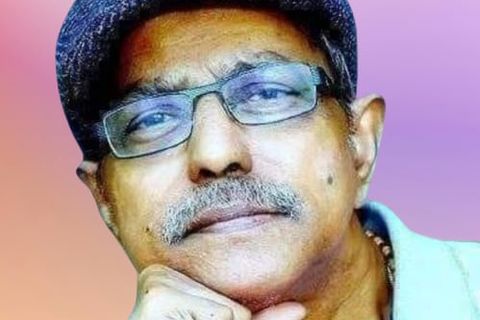RECKLESS REVOLUTION - STORY BY WILLIAMSJI MAVELI

Chapter: 2
ECHOES OF REVOLUTION
Chapter two
The spotter, a man named Krishnan, nodded curtly to Viswanathan. His eyes, though, lingered on Ramya for a fraction too long, a glint of surprise or perhaps recognition. Viswanathan, too preoccupied with the unfolding political landscape, barely noticed.
"The meeting is set, Sir," Krishnan said, his voice flat. "Murugan wants to discuss the youth outreach strategy. He believes the traditional methods are no longer sufficient."
Viswanathan’s mind, still buzzing with Karunatilaka’s artistic rebellion and David’s pragmatic take on revolution, found new focus. "Good," he said, adjusting his spectacles. "The 'little magazines' idea can be repurposed. We need to speak to them, not at them. The youth of today are not looking for grand manifestos; they are looking for authenticity."
Ramya, who had been listening intently, interjected, "And they’re looking for solutions to their problems. Unemployment. Climate change. The digital divide. Revolution isn't just about overturning governments anymore, is it? It's about changing the fundamental ways we live, work, and connect."
David, ever the political animal, nodded slowly. "She has a point. The language of revolution has evolved. It’s no longer just street protests and manifestos. It's in the viral videos, the online petitions, the shared experiences of injustice. The chaos we're talking about, Viswanathan, is already being brewed in the palm of every hand."
Viswanathan felt a jolt of recognition. The advertising world, with its focus on brevity and psychology, suddenly seemed less about selling products and more about understanding human desire – a key ingredient for any lasting change. "Precisely," he said, turning to David. "Advertising is about compelling people to act. We need to 'notice' people into revolution, as that creative director said, but for a cause, not a consumer product."
He thought of Meera, the art assistant, and her ability to distil complex ideas into simple, impactful visuals. And Surendran, the quiet copywriter, with his knack for finding the precise words. Their skills, he realized, were invaluable for this new kind of societal shift.
"Consider the societal changes we've already seen in Kerala," Ramya continued, her gaze drifting out the car window at the passing landscape. "The literacy rates, the health indicators… these weren't revolutions born of violence, but of sustained social movements, of empowering people through education and accessible healthcare. It was a quieter kind of chaos, a slow but steady overturning of old norms."
"The 'God's Own Country' narrative itself is a kind of revolution," David added, a hint of pride in his voice. "From being a remote corner, it became a global brand. That's a transformation, isn't it? A change in perception, in identity. It happened not with guns, but with carefully crafted narratives and consistent effort."
Viswanathan mulled over this. His initial vision of revolution had been an abrupt, almost violent upheaval. But now, he saw a spectrum. From Shehan Karunatilaka’s literary rebellion against trauma, to Kerala’s quiet societal advancements, to the immediate, digital chaos of online movements. The common thread was a shift in prevailing thought, a rejection of the status quo.
"What about the negative side of this 'chaos'?" Krishnan finally spoke, his voice breaking the intellectual hum in the car. "The misinformation, the polarization, the way digital anonymity can fuel hatred? That’s chaos too, but it feels far from 'good'."
Viswanathan met Krishnan's gaze. "That's where the 'authenticity' comes in," he replied. "A genuine message, a true cause, will cut through the noise. It's about empowering people with truth, not just emotion. And it's about making them believe that their participation, no matter how small, contributes to something larger."
He remembered the creative director's words about imagination and creativity in advertising. "We need to reimagine how a revolution looks," Viswanathan declared, a new fire in his eyes. "It’s not just about what we overthrow, but what we build. And for that, we need to tap into the very soul of the people, just like the best stories or the most compelling advertisements do."
As they pulled up to the local party office, a modest building bustling with activity, Viswanathan felt a renewed sense of purpose. He wasn't just a former reporter looking for a job or a disgruntled idealist. He was a student of human nature, equipped with a newfound understanding of how ideas, carefully crafted and genuinely delivered, could spark a different kind of revolution – one that began not with a bang, but with a whisper that swelled into an undeniable current. The real challenge wasn't just to create chaos, but to channel it for a purpose greater than himself.
Murugan, a man with earnest eyes and a weathered face, greeted them at the door. "Viswanathan Sir, I'm glad you're here. We need fresh ideas. The old ways are not reaching the younger generation."
Viswanathan smiled, a genuine, unburdened smile. "We have a few thoughts, Murugan," he said, looking at Ramya and David. "And I think they might just change the game."
The unseen current of change was indeed flowing, not through grand pronouncements, but through the quiet conviction of those who understood that a revolution of thought was the most powerful one of all.
WILLIAMSJI MAVELI
STORY WILL BE CONTINUED......



